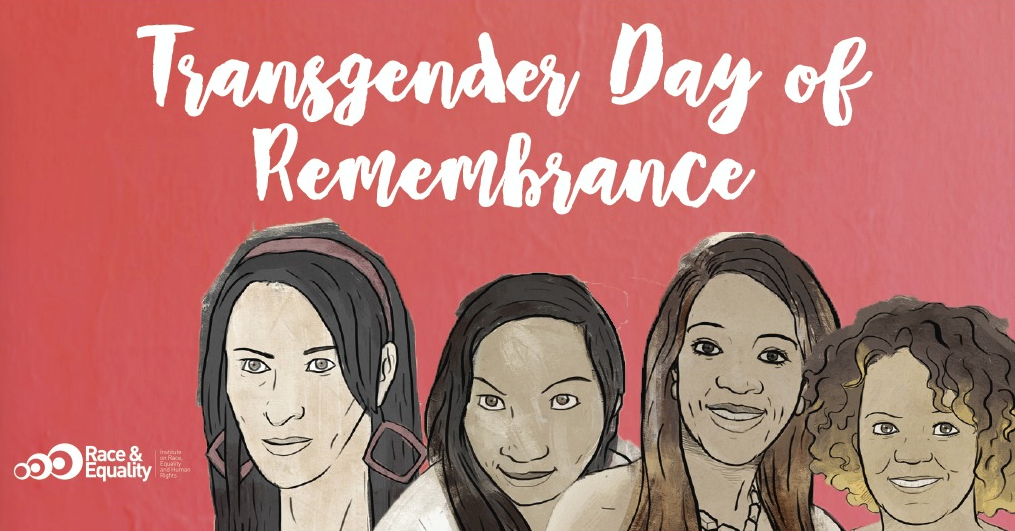No more impunity! International Transgender Day of Remembrance
On Trans Remembrance Day, The International Institute on Race, Equality and Human Rights (Race and Equality) stands in solidarity with the struggles of trans women against the various forms of […]

On Trans Remembrance Day, The International Institute on Race, Equality and Human Rights (Race and Equality) stands in solidarity with the struggles of trans women against the various forms of violence they have been victims of, particularly the violence that has obstructed their lives. The fight against the murder of trans people must be the fundamental basis of any discussion on the implementation of policies or recognition of gender identity. This is the most basic task of all States.
Brazil remains the country with the highest number of trans people murdered in the world. The dossier on murders and violence against transvestites and transsexuals in Brazil of 2018, prepared by the National Association of Transvestites and Transsexuals (ANTRA), noted that, in 2018 alone, 163 murders of transgender people occurred, 82% of them black. The largest number of trans people were killed in the state of Rio de Janeiro, with a total of 16 murders. According to current ANTRA data, as of November 11, at least 106 transgender people have been killed in Brazil this year(2019).
Murders of trans people also occur in all other Latin American and Caribbean countries. The effort of some civil society organizations to better document this violence has resulted in various regional observatories that monitor violence throughout the region such as: Sin Violencia LGBT, la Red Lactrans, and the ILGALAC, among others. However, these valuable efforts do not replace the duty of States to adequately register and investigate these acts. The UN Independent Expert on protection against violence and discrimination based on sexual orientation or gender identity and gender expression stated in his 2019 report on data collection and management:
“The breakdown of data that allows comparisons to be made between population groups is part of States’ obligations in the field of human rights, and has become an element of the human rights-based approach to data use.”
Accordingly, we highlight the relevance of not only adequately characterizing violence against the trans population, but also having a better characterization that accounts for their socio-economic situation, educational contexts, and racial characteristics, as it appears that in countries like Brazil, the magnitude of gender identity violence, especially violence against trans people, has had a particular impact on people of African descent.
This task, apart from being carried out through adequate investigation and prosecution work from a criminal perspective, must be accompanied by preventive actions in the different areas of rights protection. Some actions to adopt include the construction of policies that respond to the origin of multicausal violence, the prevention of domestic violence due to gender identity, transphobic bullying in educational settings, adequate health care with a differential approach, as well as actions of transformation and openness in work spaces.
From Race and Equality, and in alliance with the civil society organizations with whom we work in the Latin American region, we will continue to demand that integral political States denaturalize violence against trans people, and the oversight of names and lives that also deserve to be lived with full respect for their dignity and full guarantee of their rights.

